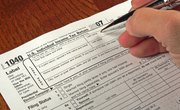
Are you wondering, “How much can I make without filing taxes?” Or you could be asking yourself, “How much can I earn before paying taxes?”
Well, it helps to know these things. But as far as the IRS is concerned, ignorance is not bliss. Should you fail to file on time, you will incur penalties. And the penalty will be five percent of the taxes you owe for the month or part of the month your return is late, up to 25 percent of the due tax amount.
In addition, you may incur interest on the penalty if you fail to pay your taxes. As a result, your tax debts will continue to grow until you pay them off in full. Therefore, it helps to know how much you can earn without filing taxes and whether you can get away with making some money without having to share it with the government.
Read More: What Happens if You Don't File Taxes?
How Much Money Can You Make Without Filing or Paying Taxes?
How much money you make without filing taxes depends on various factors. Below are some of them.
- Your filing status
- Whether someone claims you as a dependent
- Your gross income
- Your income source
- Age
- Whether you bought medical insurance within the federal marketplace
Read More: Filing an Extension for Taxes
1. Filing Requirements Based on Gross Income, Age and Filing Status
Below are the general policies that guide how you should file your 2021 taxes based on your income, filing status, and age.
- For married people filing separately and singles, the standard deduction is $12,550.
- For married people filing jointly, the standard deductions are now $25,100.
- For heads of households, the standard deductions are $18,800.
- The above stated standard deductions apply to those under 65 years. For those aged 65 years or more and those who are blind, there is an additional $1,350. However, those using the head of household and single filing status get to claim an additional $1,700 instead.
You may need to file taxes, but that doesn’t mean you will owe taxes. Sometimes, filing taxes may enable you to access a tax refund if your deductions are more than your income. So, that’s something to think about.
2. Filing Requirements for Dependents
How much can you earn before you owe taxes as a dependent, regardless of your age?
Your situation will determine your filing requirements. Typically, parents can claim you as a dependent if you are a qualifying child who is younger than 19. You could also be younger than 24 if you are attend college so long as you are single.
Dependents can also be totally and permanently disabled or meet the qualifying criteria set by the IRS. And a spouse can also claim you as a dependent.
Below are the basic guidelines.
- You must file taxes if you are single and under 65 if you have earned over $12,500 and have over $1,100 as unearned income. However, if you are blind, your earned income threshold rises to $14,250.
- If you are single and 65 or older, you should file taxes if you earn $14,250 and make over $2,750 in unearned income. But if you are blind, your earned income threshold rises to $15,950.
- You must file taxes if you are married and under 65 if you have earned over $12,400 and have over $1,100 as unearned income. However, if you are blind, your earned income threshold rises to $14,250. However, if you are filing taxes separately, you must file so long as your income is over $5 and you have more than $3,700 in unearned income.
- If you are married and 65 or older, you should file taxes if you earn $14,250 and make over $2,400 in unearned income. But if you are blind, your earned income threshold rises to $15,950. However, if you are filing taxes separately, anything over $5 in earned income or $3,700 in unearned income must be reported.
3. Filing Requirements for the Self-Employed
The rules for the self-employed are simple. If your net income is $400 or more, you need to file your taxes. But even if you did not earn that much through self-employment, you may still need to file taxes if you meet other tax filing criteria.
4. Filing Requirements After Purchasing Medical Insurance
When you buy health insurance via the federal marketplace, the IRS requires you to file your tax return. How much you earn in this case will not matter. And if you don’t file your tax returns on time, you risk not getting advance payments from your marketplace the next year.
It’s safe to say that you should ask a qualified tax professional, “How much can you earn without paying tax?” Unless you have an idea of your income source, gross earnings and filing status, it’s difficult to answer that question directly. There are just too many variables. So, it would be best to determine your financial and personal situation beforehand and how you intend to file your taxes.
References
Writer Bio
I hold a BS in Computer Science and have been a freelance writer since 2011. When I am not writing, I enjoy reading, watching cooking and lifestyle shows, and fantasizing about world travels.

